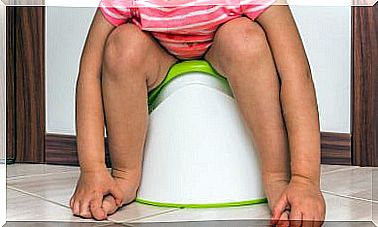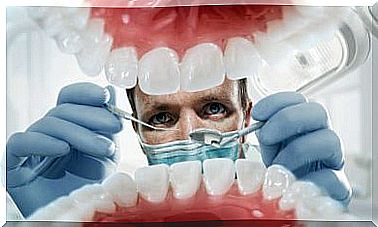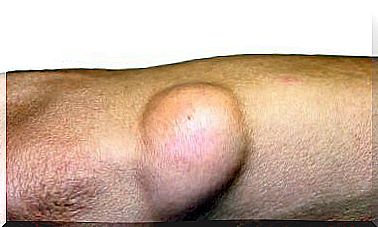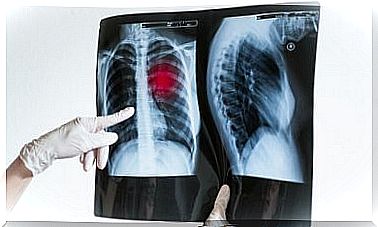What Are The Symptoms Of Infant Spitting Up?
Infant regurgitation can present certain symptoms that may indicate a more important pathology. We explain what they are.

Infant spitting up is a common phenomenon in babies under one year of age. Regurgitation consists of the passage of stomach contents to the pharynx or mouth. Unlike vomiting, regurgitation occurs without effort or nausea.
It occurs in more than 50% of babies. However, infant regurgitation can sometimes be a sign of gastroesophageal reflux disease. In this article we explain what its causes and symptoms are.
Why does infant regurgitation occur?
Infant regurgitation occurs because their digestive system is not yet fully developed. The esophagus has a valve that regulates the passage of food into the stomach. It is the lower esophageal sphincter.
In newborns, it is still immature, so stomach contents tend to flow back into the esophagus. As the baby grows, this valve develops and regurgitations disappear naturally.
Also, another factor that promotes spitting up is the baby’s posture. Children, before 8 months of age, spend most of the day lying down. This also favors the movement of the food towards the mouth.
The fact that the diet is almost entirely milk-based is also an important factor. When the baby begins to eat solid foods, spitting up decreases. In the same way, the amount of food they eat influences. The more “full” the baby is, the easier it is for this phenomenon to occur.
When to worry about infant spitting up

As we have said, infant regurgitation is a physiological phenomenon in most babies. However, it is advisable to consult a pediatrician if the baby has symptoms such as:
- The baby does not gain weight.
- His regurgitations are very profuse.
- You are tired, sluggish, or sleepy.
- Spitting up occurs forcefully or is accompanied by blood.
- You have signs of dehydration. When this happens, the baby wets less diapers, has sunken eyes, dry mucous membranes, and so on.
- If the spitting up liquid is green or brown in color.
When this happens, the baby may suffer from gastroesophageal reflux. That is, if the regurgitations persist over time or present these symptoms, it is possible that it is something more serious.
Continuous reflux can cause alteration of the esophageal mucosa, since the contents of the stomach have an acidic pH. In fact, it can cause anemia or air complications. The baby may suffer episodes of apnea, persistent cough, or recurrent bronchitis.
To diagnose reflux, complementary tests such as endoscopy, esophageal pH measurement and radiological tests are used.
What to do about regurgitations

Although it is almost always something normal, it can also be uncomfortable for both the child and the parents. There are some measures that can help us reduce infant spitting up. First of all, it is advisable to keep the baby upright, not fully lying down.
Especially after every meal for half an hour, you can put pillows or diapers under the mattress to get the incline. Likewise, avoid very active games after feeding him.
Second, it is important to feed the baby calmly and avoid overeating. Similarly, it is recommended to burp him. Burping prevents air from building up in the stomach and promotes digestion.
If you are feeding your baby formula, it is even more important not to give too much. Formula is harder to assimilate.
When none of this helps or the baby meets the criteria for severity, the doctor may recommend medication. They work by reducing the amount of acid in the stomach. However, you should not give your baby medication unless the doctor tells you to. The most commonly used medications for gastroesophageal reflux are:
- H2 blockers, which decrease acid production.
- Proton pump inhibitors, which reduce the amount of acid the stomach makes.
In some cases, medicines do not help. Therefore, there are surgical techniques reserved for this. Surgery is only done when the baby has severe breathing problems or an underlying anatomical cause.
In conclusion, infant regurgitation is normal. However, it is important to be attentive to the aforementioned warning signs and see a doctor if you have any questions.









